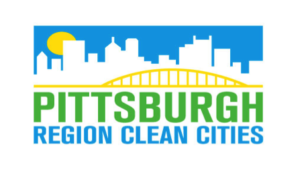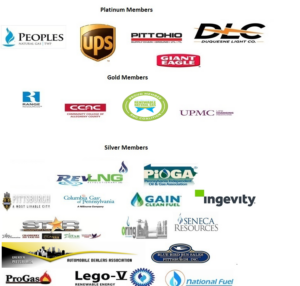Stations at transit agencies around the state during the next five years.
- Cambria County Transportation Authority, Johnstown facility (2016), includes public fueling
- Centre Area Transportation Authority (2016)
- York Adams County Transportation Authority, York facility (2016), includes public fueling
- Mid Mon Valley Transportation Authority (2017)
- Cambria County Transportation Authority, Ebensburg facility (2017)
- Indiana County Transportation Authority (2017), includes public fueling
- Lehigh and Northampton Transportation Authority, Allentown facility (2017)
- Westmoreland County Transportation Authority (2017)
- County of Lackawanna Transportation System (2017), includes public fueling
- New Castle Area Transportation Authority (2017), includes public fueling
- Altoona Metro Transit (2017)
- Beaver County Transportation Authority (2017), includes public fueling
- Lehigh and Northampton Transportation Authority, Easton facility (2017)
- York Adams County Transportation Authority, Gettysburg facility (2017)
- Luzerne County Transportation Authority (2017)
- Crawford Area Transportation Authority (2017)
- Erie Metropolitan Transportation Authority (2018), includes public fueling
- County of Lebanon Transportation Authority (2018)
- Schuylkill Transportation System (2018)
- Monroe County Transportation Authority (2019)
- Area Transportation Authority of North Central PA, Bradford facility (2019)
- Area Transportation Authority of North Central PA, Johnsonburg facility (2019)
- Butler Transportation Authority (2019)
- Mercer County Regional Council of Governments (2019)
- DuBois, Falls Creek, Sandy Township Joint Transportation Authority (2020
- Transit Authority of Warren County (2021)
- Capital Area Transit (2021)
- Port Authority of Allegheny County (2021)
John Paul, executive director of the Butler Transit Authority, says the agency will convert all six of its vehicles to run on CNG, and purchase five more to run a commuter route from Butler. Those plans hinged on PennDOT’s plans, he said.
“We’ve been planning on going down the CNG road for a number of years, so we’re excited that they’ve been able to go through the process and move forward,” he said.
Much further down the road in the project is Port Authority of Allegheny County, which does not have a station scheduled until 2021. But spokesman Adam Brandolph said the agency would require a new garage to maintain CNG buses as part of its 700-vehicle fleet, and those plans have not taken shape.
Ken Zapinski, senior vice president of energy and infrastructure, Allegheny Conference on Community Development, said the big unknown with CNG fuel is whether the price will remain cheaper than diesel fuel as both fluctuate. But creating public access to CNG fuel might help businesses save money if they choose to convert their vehicles, he said.
“These are the kind of innovative ideas that setting up the (public-private partnership) mechanism was intended to promote,” he said.
PennDOT estimates transit agencies will be able to save a collective $10 million annually, using cheaper CNG instead of diesel.
Trillium CNG was selected based on a competitive bidding process that started in 2014.
Secretary of Transportation Leslie Richards made the announcement at a news conference in Cambria County, which will receive one of the first stations constructed this year. The Johnstown facility of the Cambria County Transportation Authority, which has natural gas vehicles, will be the first station built later this year.
The Westmoreland County Transit Authority uses 22,000 to 23,000 gallons of diesel fuel a month to power its fleet of 41 buses. As a cleaner, cheaper alternative, executive director Alan Blahovec has wanted to invest in buses that run on compressed natural gas — but there was nowhere to fuel them.
Next year, a new public-private partnership will make that happen.
“The station was the first big step, and we’re happy that PennDOT put the project together,” he said. “Every penny in savings that we could get counts.”
The $84.5 million public-private partnership plans to build 29 CNG fueling stations at selected transit agencies across the state during the next five years. Trillium CNG, based out of Salt Lake City, and Larson Design Group of Williamsport, Lycoming County, will build the stations and then operate them for the next 20 years.
Blahovec said the agency plans to buy 16 CNG-powered buses in 2017 after a station is built at its facility in Greensburg.
Seven of the stations, including one in Beaver County, will be able to be used by the public and private sector businesses. PennDOT will receive a 15 percent royalty from those sales, with $2.1 million in payments guaranteed by Trillium. Royalties received over the 20-year term of the contract will be used to purchase CNG-powered buses for transit agencies. The U.S. Department of Energy estimates 150,000 vehicles run on natural gas.
“We knew it was coming, and we’re looking forward to it,” said Mary Jo Morandini of the Beaver County Transit Authority.
The agency purchased three CNG-powered buses that will arrive next fall. Morandini said they plan to swap 25 of their 50 buses with CNG vehicles in the coming years.
“We are running diesel buses right now, so the CNG is a cleaner, less expensive alternative,” Morandini said.

